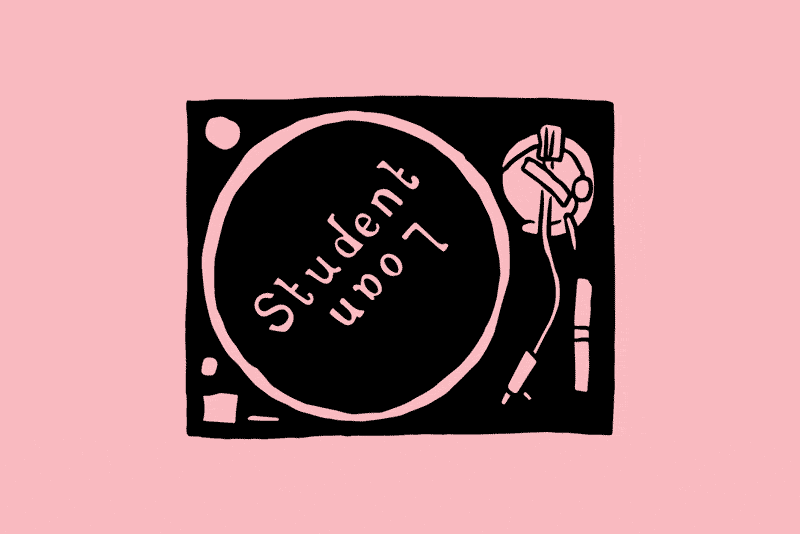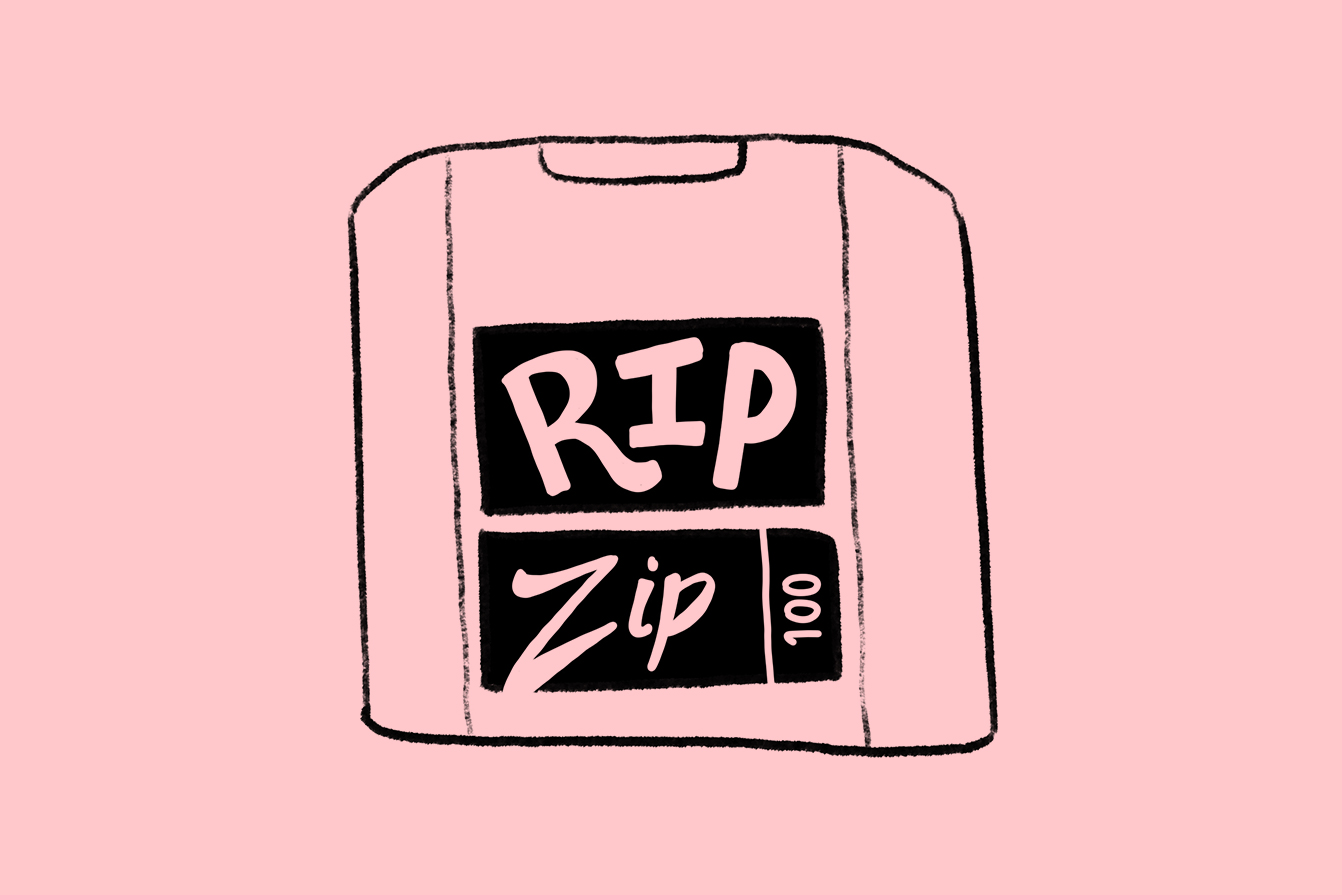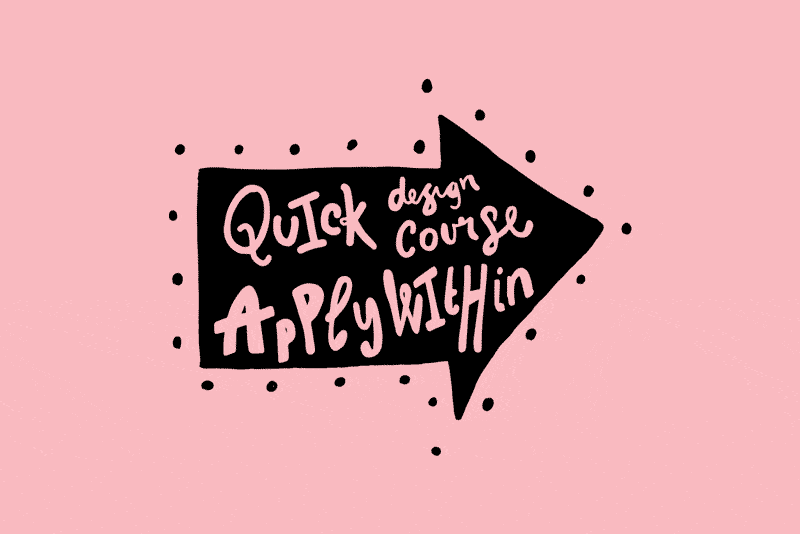Do I need to go to University to be a designer?
Do I need to go to University to be a designer?
It’s long been the natural route to becoming a designer. Finish school, go to College, go to Uni, leave with £50k of debt and begin your career. But, does it have to be this way?
Written by Oliver Booth on 23.07.2020
It’s long been the natural route to becoming a designer. Finish school, go to College, go to Uni, leave with £50k of debt and begin your career. But, does it have to be this way?
Written by Oliver Booth on 23.07.2020

The day my student loan dropped into my bank account was a special day. I’d just started college, and as it was so close I stayed at home to soften the blow on the wallet. The loan I had was for books, materials - the things I’d need to give myself the best chance at college. I spent it on some decks and a mixer. I don’t regret a thing.

The irony of this piece, is that neither myself or Dave have been to Uni. We both went to Norton College where we completed (scraped through) a National Diploma, and then a Foundation Degree. We had the option to do a top-up to make it a full BA Degree, but decided against it. The calling of getting a real job was too strong. Surprisingly, Pentagram didn’t come knocking, and we ended up at low-end design jobs.
So we didn’t go to Uni, but we did go into higher education to study design. But is that necessary? Could we have done it without going down what’s seen as a ‘traditional route’? The short answer is yes we could. There are alternatives to going to Uni...
Traditional Higher Education (College/Uni)
Before the alternatives, let’s talk about College/Uni. I’ll start by saying this. I had a great time at College. In all honesty, I could have tried harder. Everything was left until the last minute. Research was a hindrance and done AFTER the project, just to tick the box that I’d done it (it took me a long time to understand the importance of research). One of the best parts of College was the social side - I probably spent more time in Republic/Gatecrasher than I did College.
Looking back, our attitude (myself, Dave and the others we hung around with) was one more of fun than getting our heads down to work. In the first year I vividly remember we ran from College to the nearest pub for a pint, and then ran back in the 15 minute break. Why? Because it was fun. Don’t forget to have fun.

We were taught on old iMac G3s, saving our work on Zip Disks and had access to a rather shoddy large format printer. We’ve visited the SIA numerous times, and the facilities the students have access to is pretty amazing. Our question is, is it worth clocking up £50k of student debt to learn this way?
The Higher Education Funding Council for England studied the number of graduates who went on to gain a career in design, between 2012-13, and 2015-16. You can read a summary here. They found that approx 30,000 students graduated with design degrees, but only a quarter ended up landing jobs. Of those that did, the average graduating salary was just over £19k, well below that of architecture, law, maths. Fuck, you could make that driving a bus, without the need for a mega loan. And yes, I know that’s a shit comparison, but even with progression, an average designer salary in the UK is around the £30k mark. “But I only have to pay back a small portion of my student loan, so I’m not worried”. Well yes, but that’s creating an almighty shitstorm in relation to the UKs economic borrowing. It’s definitely worth considering the pros and cons of higher education, and the costs associated to enter an industry that’s not as highly paid as it should be.
Quick courses (Shillington)
THIS IS NOT AN AD FOR SHILLINGTON. We’ve never had anything to do with these guys, other than checking out their offering. They profess to teach you graphic design in 3 months (full time) or 9 months (part time). I’m not great at maths, but that’s a bit quicker than the 3 years it’ll take to do a BA.
There’s a decent article from the director of Shillington here for anyone interested.

Their courses cost around £8k, so far cheaper than what it costs to go to Uni. The speed at which you can complete the course is what interests me the most, especially if you’re looking to switch careers, or 3 years seems too long. You can see the sort of work their students are putting out on their social media, and they seem to be pretty good at getting industry peeps to visit, to talk to the students and offer advice.
I have no first hand experience of this, but from the outside it’s certainly an interesting alternative. I’ve seen negative comments about it online “You can’t learn design in 3 months”. No you can’t - it’s 10 years since I graduated and as cliche as it sounds I’ve not stopped learning, and that learning has never been higher than the last 2 years. A 3 month intense course to thrust yourself into the industry and then keep learning seems pretty damn attractive.
Check them out at shillingtoneducation.com
Self-learning
For me, this is the holy grail of continually improving yourself, and something that I didn’t prioritise enough.
If you don’t want to go to Uni, or pay to do a course, then use the digital world to learn the trade you want. Not only can you order food that gets delivered by a bloke on a bike within minutes, but you can learn the fundamentals of many a subject, sitting on your arse on the settee. It’s more than possible to learn how to use the obvious design tools from watching tutorials. Even now, I need to Google the simplest of tasks in Illustrator, as there’s more to life than remembering shortcuts. What is a bit more tricky, is picking up the soft skills you’ll be exposed to on a course - the ability to communicate with colleagues and clients, to present your work, to attain a brief, etc, but there’s still a vast amount of information out there to help these skills.

Additional to this, are learning the fundamental principles of design theory and how to generate ideas, how to scrap ideas, and so on. No matter which route you choose, there should be a constant evolution of your understanding of everything design, as well as the many complimentary subjects that will make you a much more rounded designer.
There’s a reason why people choose to pay to go on courses. It's easier. We pay and then we’re served up the information in a palatable way. Self-learning places the emphasis solely at your door - this may not be the best route if you’re not a self-starter.
This category has EXPLODED recently, with plenty of resistance from the old guard who kiss their British Railway Brand Guidelines goodnight. This sudden influx of new courses and coaching shows there is a real appetite, and maybe education is evolving to become more accessible.
There's plenty of specific design based resources out there where you can learn about design, photography, videography and coding - some free, some not. I've not used all of these services, and I'm not vouching for the quality. It's also not an exhausted list - there are new things popping up all the time, so keep searching.
skillshare.com
lynda.com
thefutur.com
superhi.com
Don't forget the tried-and-tested platforms to gain knowledge. I'm personally a big fan of audible — great way to take on knowledge during a run/workout/commute.
Written by Oliver Booth on 23.07.2020
Follow the studio on Instagram and Twitter
Written by Oliver Booth on 23.07.2020
Follow the studio on Instagram and Twitter
Share:
Share:
Want a question answered?
Email us advice@sidebyside.co.uk
Want a question answered?
Email us advice@sidebyside.co.uk
Over the last few years we've become a little jaded with the whole design industry. As we've grown as a business – and more importanly, people – we've seen the importance of helping others, and giving back. We've learnt a hell of a lot during our careers, mostly from fixing fuck-ups, and we want to share this knowledge.
We can see the pitfalls of this industry (we've lived it) and now we're in a position where we can help, rather than just moan about it. We've listened to many a student and young designer asking the same questions, so we know there's a scarcity of answers out there. No inspirational quotes. Just gritty, honest, insights.
Gain Knowledge. Give Knowledge.
Over the last few years we've become a little jaded with the whole design industry. As we've grown as a business – and more importanly, people – we've seen the importance of helping others, and giving back. We've learnt a hell of a lot during our careers, mostly from fixing fuck-ups, and we want to share this knowledge.
We can see the pitfalls of this industry (we've lived it) and now we're in a position where we can help, rather than just moan about it. We've listened to many a student and young designer asking the same questions, so we know there's a scarcity of answers out there. No inspirational quotes. Just gritty, honest, insights.
Gain Knowledge. Give Knowledge.



